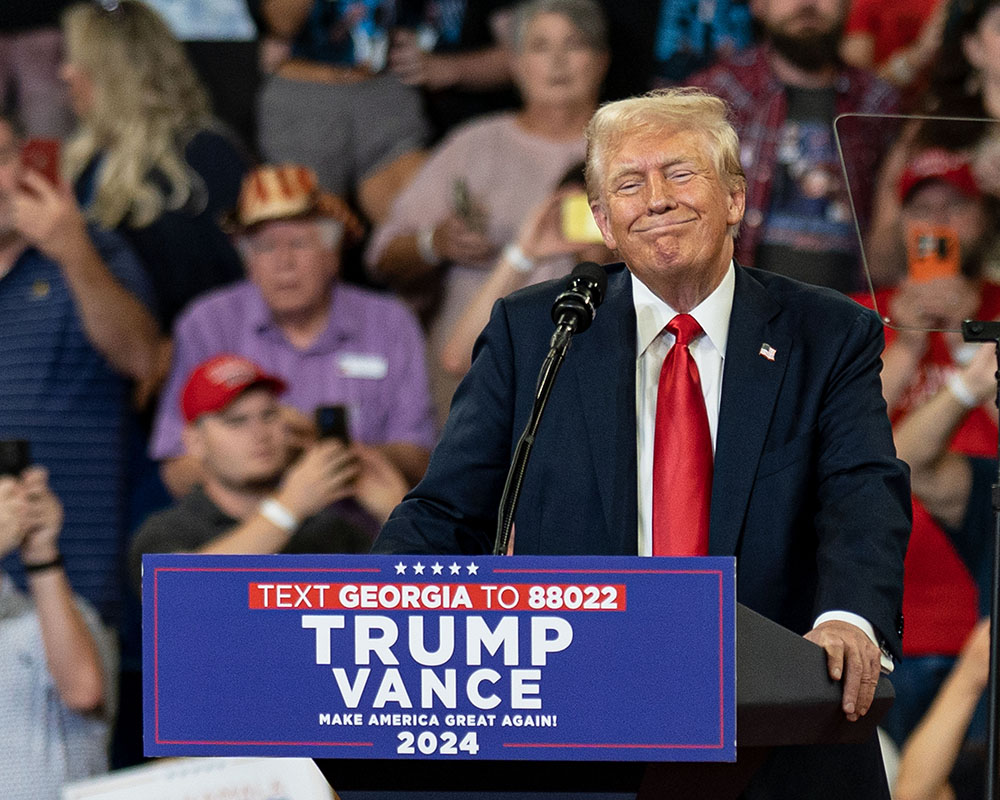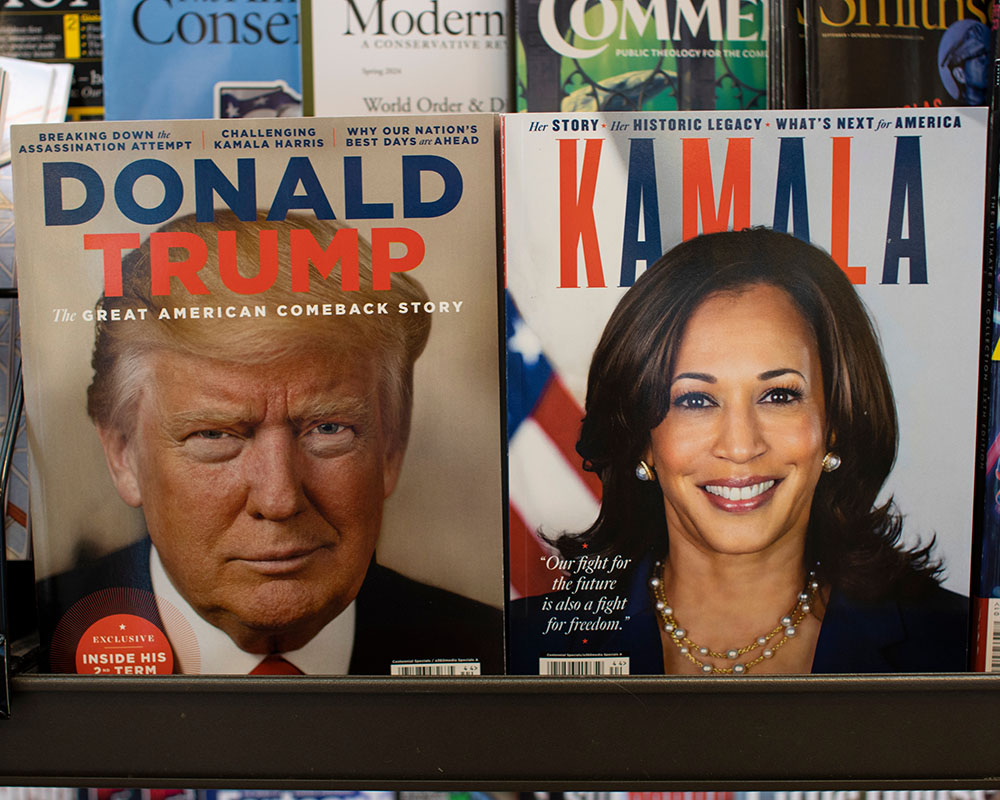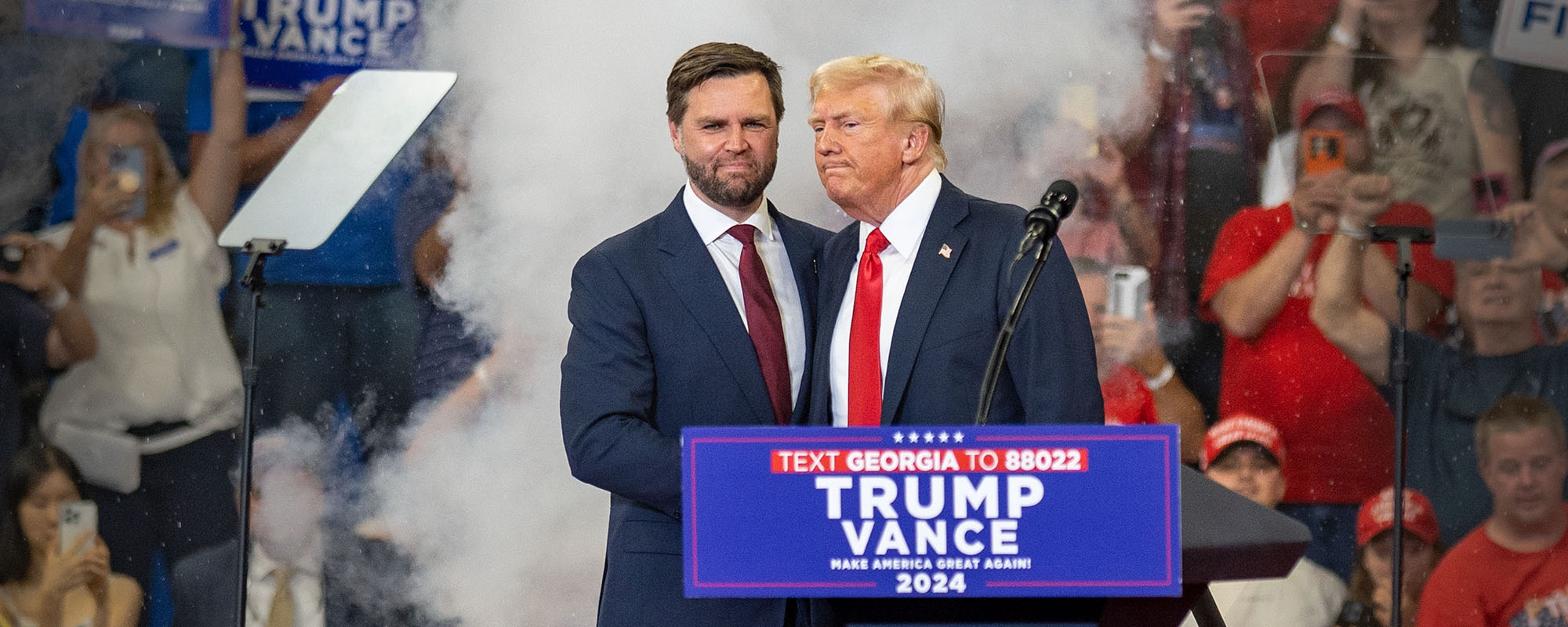Post-truth populism has secured a powerful mandate in the United States of America. This reflects a trend that extends through the world’s liberal democracies and will invite global imitation. In this opinion piece, Jonathan Firbank describes how post-truth populism works, why it works, and why the American election might show us how to fight it.
Falsehood will fly on the wings of the wind and carry its tales to every corner of the earth; whilst truth lags behind; her steps, though sure, are slow and solemn, and she has neither vigour nor activity enough to pursue and overtake her enemy.
—Rev. Thomas Francklin, 1787
Post-truth populism has secured a mandate in the world’s most powerful democracy. This is the crowning achievement of a right-wing trend that is currently flourishing wherever elections are held. A conspiratorial Republican party, unrecognisable from Bush’s administration, has won the presidency, the House, and the Senate.1 This was, effectively, a referendum between institutional politicians and radical firebrands. Like many referendums before it – from Georgia’s thuggishly manipulated national election2 to Brexit3 and a growing wave of populist victories across Europe and the Americas – it has left half of its electorate in a state of shock and, with good reason, feeling powerless.
The feeling of powerlessness is more absolute if you are reading from Malta or anywhere outside the United States. You had no way of influencing a change that will, with certainty, affect your future. If you are from Ukraine or Taiwan or Lebanon or Palestine, you are entitled to additional feelings of disbelief, despair, and outrage. The rest of us cannot afford those feelings. It’s become vital that we face our new reality coolly so that we might slow this trend. Each time we look away, our vision gets worse. Each time we stand by a principle, the subject gets changed. Our exclamations are the squeaking of a dog’s chew toy: our cries please post-truth populists, causing them to bite down harder. These exclamations are recorded, clipped, distorted, plucked from our self-defeating algorithmic bubbles, then repurposed to suit theirs. Our outrage is their content and their audiences’ schadenfreude.

Beyond Truth
The Trump campaign used a technique called a ‘firehose of falsehood’. Outlandish claims were made with either no evidence or with demonstrable evidence to the contrary. The campaign lied about everything from post-birth abortions4 to pet-eating immigrants5 to the 2020 election.6 This happened with such speed and volume that the press couldn’t keep up, and the public gave up on seeking the truth. In the controlled environment of a debate, this technique seemed to bend under the weight of its absurdity. During Trump’s seemingly disastrous performance against Harris, he was fact-checked by moderators repeatedly, appearing increasingly flustered and foolish.
Vance, a more evolved post-truth populist, followed Trump. In his debate, Vance was personable, slick, and persuasive. He was similarly dishonest and protested fact-checkers – this time not attempting to refute them, but instead complaining that fact-checking occurred at all.7 The campaign reacted. Trump’s next debate with Harris was abandoned.8 The long tradition of an interview with 60 minutes was abandoned.9 Instead, podcasts were turned to.10 Starstruck comedians were guaranteed not to even consider fact-checking, let alone have the means to perform it in real-time. In the 11th hour, the Republican campaign spread new lies about electoral fraud in case the democratic process turned against them.11 But, surely, the cat was out of the bag? Both men were proven liars. The ‘pro-truth’, academically-minded readership of this article would consider that disqualifying.
It’s not.
A post-truth politician does not need to convince people of his lies. Instead, he blurs the boundary between lies and the truth, casting doubt on the notion that truth can be accessed at all. He nurtures the assumption that all political figures lie; thus, the politician to choose is not the one who tells the truth, or even the one that tells the most truth. Instead, the politician to choose is the one with whom you are a co-conspirator. If you identify as right-leaning, or conservative, or anti-woke, or working class, or ‘for common sense’ (as most people do), you will pick your liar over their liar. And never forget, that is the choice they are making. Political language has evolved into something weaselly and non-committal. Politicians refuse to give a straight answer to most questions and use technocratic, elitist language when they finally get to the point. This elusive speech, deployed for political expediency, has massively backfired. Put simply, a careful politician sounds like a snake, but a populist brute sounds matter-of-fact. People prefer the latter.
We all have some form of magical thinking, inferring how the world works by combining assumptions. This can lead to incorrect worldviews that ‘just make sense’. Our political institutions are opaque for most people. They do not have the time, means, or inclination to learn about the incredibly complex interconnections between laws, lawmakers, elected and unelected officials, geographical and demographical electorates, etc. But they correctly intuit that this complexity conceals flaws and can be weaponised. These institutions are riddled with imperfections, biases, loopholes, and blind spots. They are slow to react and vulnerable to global economic events.
Biden’s administration, for example, was efficacious in many ways. The US economy outperformed other nations in managing their share of a global economic crisis12 – the trailing fallout of the pandemic and the shock of new wars. But while inflation, employment, and GPD were satisfactory,13 the cost of living was not. US political institutions, long-biased towards people less impacted by rising prices, were perceived as blind to this problem. The Harris campaign did not adequately address this. Their post-truth opponents didn’t offer a solution, they in fact suggested tariffs that would massively inflate the cost of living.14 But they didn’t need a solution; they could just pander to a growing anti-institutional sentiment by apportioning blame to institutions above, and immigrants below.

People are voting against flawed institutions in protest, seeking to tear down these unknowable leviathans and replace them with populist promises. These lies are simple and, importantly, satisfying. It feels good to hear of a blanket solution, a generalisation, a scapegoat. People want to feel good. Whether it is true is secondary, as ‘nothing can be proven, anyway’. The consequences of tearing at democratic institutions are appalling for the electorate, but this misery can be medicated with yet more lies. The greatest irony is that right-wing demagogues have railed against a strawman: ‘postmodernist leftists’.15 Yet in actuality, the new right-wing populism is the most postmodernist political movement of all time.
The right-wing grifters in our informational spaces don’t seek to create certainty in falsehoods. They seek to create doubt in everything, cynically, pragmatically or pathologically. This allows them to detach their words from their actions and, eventually, from their previous words to facilitate their need for wealth, power, and the means to punish those they hate. You may be horrified by this, but many voters are not. They know it and vote for it anyway. Better the grifter you know.
Beyond Ethics
The World Wars are effectively gone from living memory.16 The liberal democracies of today were informed by that collective trauma.17 This expanded the following triumphs of ethical values: Human Rights; Representation; Rule of Law; International Cooperation; Countermajoritarianism; Civil Liberties; Education; Welfare; Economic Stability; and Critical Thinking. The importance of these values was learned through personal experience, the most reliable determiner of behaviour.18 This is now lost. Instead, the wars are just part of broader national myths that simplify our society instead of complicating it. For the most part, they foster pride instead of conscientiousness, draping flags around us as comfort blankets. While they often incorporate strident ethical values, these ethics are stagnant, locked in the past. Increasingly, these values are also post-truth and mercurial, erasing history and mutating to suit people’s desires. What does ‘Un-American’ (or, for that matter, mhux Malti) actually mean? It means whatever you need it to mean in the moment you say it.
Ethical values in liberal democracies flowered in the post-war environment and, in many spaces, continue to rapidly develop. But in most spaces, ethical values are on defence, not offence. They are just a yardstick which we try not to dip below. We often (with magical thinking) assume our personal yardsticks to be a broader societal standard. This is catastrophically reinforced by our informational bubbles, which cause us to be morally horrified if this assumption is challenged. This horror paralyses us. It makes us less likely to vote according to our ethics, as we assume others will do the same. It makes us less likely to see an authoritarian for what he is, as we can’t imagine his perspective. It makes us less likely to interact with those with different ethical values, warping our perspective of reality and allowing radicalism to grow unseen.
People with progressive values sometimes lack the ability to acknowledge contrary ethical values. They almost always lack the ability to acknowledge that some people want bad things to happen despite knowing those things are unethical. The post-truth populist can create dog whistles and permission structures to secure the vote of these people by using hyperbolic half-truths that aren’t taken seriously by moderate supporters. Think of your strongest ethical beliefs, the ones that seem universal. There is another voter in your country that doesn’t share them. Believe in the right to education? You should, but another voter doesn’t. Believe in the right to healthcare? You should, but another voter doesn’t. Believe we shouldn’t elect people who have committed fraud, treason, or sexual assault? You should, but another voter doesn’t.
Do you, rightly, believe in Democracy? You have a counterpart that doesn’t, and yet still votes.

This reality must be treated strategically if it is to be overcome. Lurking in the best week of the Harris campaign is a formula for defeating post-truth populism. It lit up brightly, then was consumed by Democrats’ horror and outrage at Trump’s rhetoric. This formula was ugly, degenerative and divisive, but it was working: Harris and Walz mocked Trump.19 They insulted him, they laughed at him, they teased him, they dismissed him. They stared into the authoritarian abyss he represents and sneered. He was undone, utterly. His charm evaporated, his invulnerability shattered, and he fled from a second debate. His narcissism became a weakness instead of a strength: ‘If your opponent is of choleric temper, seek to irritate him’ (The Art of War, Sun Tzu).
Authoritarian post-truth populists depend on an aura of strength and victory to maintain popularity, which is why Trump did not concede the 2020 election.20 The Democrats briefly found a different way to make him a loser, yet when they returned to their principled outrage, their campaign fell apart. This derision may become key to liberal democracy’s survival. Like their opponents, ethical leaders must unapologetically be on the offensive. They must be nasty, mean, taunting, derisive – never to the electorate, but instead to the individual grifters who exploit them. They must abandon political language for populist language, touring hostile podcasts as much as they accept softball news interviews. They must challenge their own magical thinking constantly and attack that of others relentlessly. And, all the while, they must keep their eyes wide open, surveying each ugly truth before it is hidden forever.
Further Reading
Atkinson, E. & Thorpe, N. (2024 November 25). Far-right candidate takes shock lead in Romania presidential election. BBC News.
Borg, J. (2016, June 26). Era of post-truth politics. Times of Malta.
Grech, A. (2021). Media, Technology and Education in a Post-Truth Society: From Fake News, Datafication and Mass Surveillance to the Death of Trust. Emerald.
Wolff, M. (2018). Fire and Fury. Henry Holt and Company.
Woodward, B. (2024). War. Simon & Schuster UK.
Vlad Vexler. (2024 November 7). Trump’s Authoritarian Revolution – For the USA, World & Ukraine. YouTube.





Comments are closed for this article!